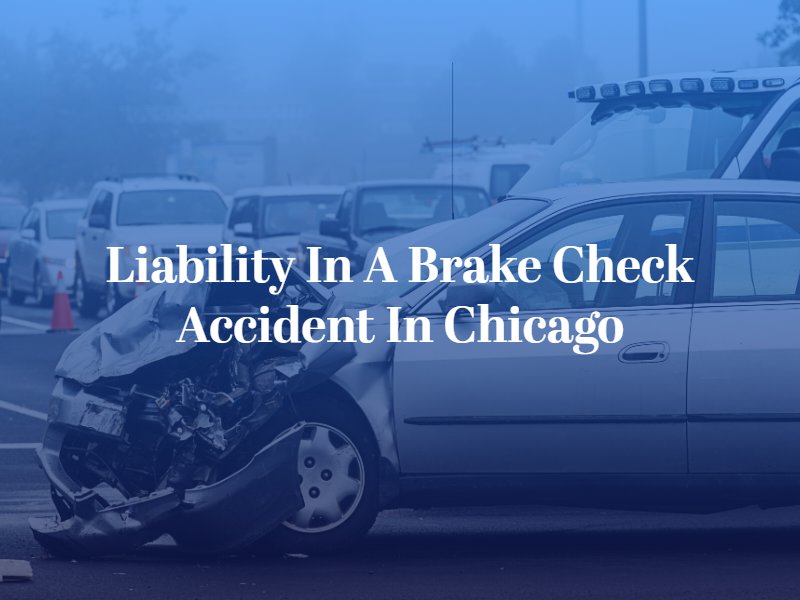Who’s Liable in a Brake Check Accident in Chicago?
Brake checking is never a good idea, even if somebody is tailgating you.
You probably have a general understanding of what brake checking is. This is a technique in which a motorist deliberately applies their brakes, forcing the driver behind them to use their brakes or take evasive action to avoid a collision. Often, brake checking is done as a form of aggressive driving or road rage, and is not legal in this particular circumstance.
However, determining liability after a brake-checking incident can be confusing, particularly if these incidents cause a rear-end collision and there is not much evidence to prove that brake-checking occurred.

Common Scenarios When Brake Checking Occurs
Understanding the typical scenarios where brake checking occurs can help drivers stay alert and avoid potential hazards. Here are some common situations:
- Tailgating: The most frequent scenario for brake checking is when a driver feels that another car is following too closely. In an attempt to warn the tailgater or compel them to back off, the leading driver might brake suddenly and sharply.
- Road rage: Emotional driving, especially in response to perceived slights or aggressive driving behavior by another motorist, can escalate to brake checking. Drivers consumed by anger might use this tactic as a form of retaliation.
- Traffic congestion: During heavy traffic conditions, frustration can lead to impulsive decisions. Drivers who are irritated by the slow movement might brake check to prevent others from cutting in front of them.
- Speed variations: On highways, where speeds can fluctuate rapidly, drivers who are unhappy with another vehicle’s speed changes may brake check to send a message.
Drivers in Chicago should be particularly cautious in these scenarios, maintaining a safe following distance and staying calm, regardless of others’ driving behaviors, to avoid the dangers associated with brake checking.
Determining Liability After a Brake Checking Accident
Identifying who is at fault in a brake-checking accident presents unique challenges compared to typical rear-end collisions. In most rear-end accidents, liability often clearly falls on the driver who crashes into the back of another vehicle, as drivers are expected to maintain a safe distance that allows them to stop regardless of sudden halts. However, brake-checking scenarios complicate this assumption due to the intentional nature of the act.
Brake checking involves one driver deliberately slamming on their brakes, usually without a legitimate reason, which can make it difficult to establish fault. The driver who brake checks may argue that they were responding to a hazard or that the following driver was too close. Proving that the brake check was unprovoked and intentional requires gathering robust evidence such as dashcam footage, eyewitness accounts, or traffic surveillance videos.
Victims of such incidents may feel overwhelmed by the complexity of proving liability in these situations. However, working with a skilled car accident attorney in Chicago can increase the chances of a favorable outcome. Experienced attorneys understand the nuances of traffic law and have the resources to investigate the incident thoroughly, ensuring that all evidence is discovered.
